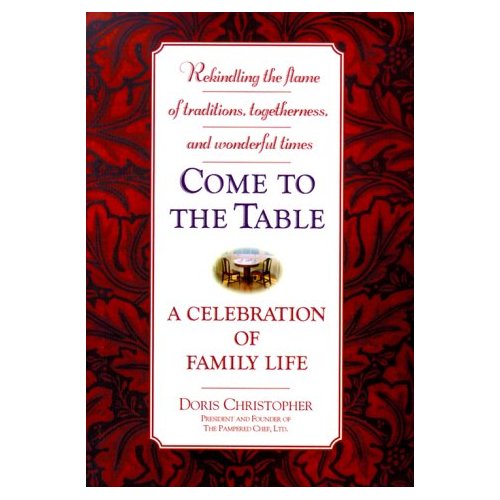She was a member of a Stone Age tribe. He was an American anthropologist who’d come to the Amazon jungle to study them. Today, Ken and Yarima Good live in Rutherford, N.J., with their three children. Theirs is a story of timeless love, part science fiction, part fairy tale.
RUTHERFORD, N.J. (AP) — Yarima Good is leaving the shopping malls, traffic jams and fast-food franchises of the suburbs this winter for a journey 10,000 years into the past.
She’ll be among Earth’s most primitive people, with no written language and no concept of numbers or time; naked Indians who feast on termites and tarantulas and have yet to invent the wheel.
In effect, she will be in the Stone Age.
In fact, Yarima will be home.
Five years have passed since the love of a man brought Yarima out of the Amazon jungle, through the looking glass and into the 20th century.
Five years since she first wore clothes or walked in shoes; since she learned to make light by moving a little stick on the wall; since she
crouched under a bush to hide from the terrible beast with glowing eyes that turned out to be her first car.
Now the mother of three in a suburban jungle, she can laugh at her early fears: that her reflection would spring from mirrors and attack her, that toilets would bite her if she sat on them.
In 1975, when anthropologist Kenneth Good went to Venezuela to study Yarima’s people, the Yanomama, she was a child, and he was the first “nabuh,” or outsider, she’d ever seen.
He ended up staying 12 years. The child who’d shared her plantains and fishing spots with him grew up. So did their fondness for one another.
Against all odds, it bloomed into love.
Now Ken is her husband and it’s Yarima who’s a stranger in a strange land, the land of the nabuh, where everything’s different — everything except love. That alone is the same: strong enough to bridge the 10,000 years between her world and his.
There is much in this baffling wonderland that delights her: Macy’s sportswear and McDonald’s french fries. Michael Jackson and NFL football.
Automatic dishwashers and disposable diapers.
Still, it’s a staggering transition from life in a jungle tribe, surrounded by every friend and relative she’d ever known, to life in a two-bedroom apartment in a New York City suburb. If it weren’t for her children, Ken says, Yarima would sooner go home.
Sometimes her dreams carry her back to the jungle, and she imagines herself lying in her hammock surrounded by friends. She dreams she’s walking through shallow streams with her sister and brother. The water feels cool on her bare feet and crabs nibble her fingers as she scoops them up in her hands.
Then she wakes up.
Those dreams and the videotapes Ken made in the jungle are Yarima’s only links to her past. Short of an arduous and expensive journey back through the looking glass, she has no way of communicating with family, no way of knowing they’re alive.
In the jungle, says Ken, every day is the same. “In the morning, the women go out to the forest. They make a fire, sit and talk, laugh, watch each other’s babies and take turns going off to gather food, which will be shared. Then they go to the stream, wash their babies, themselves and the food, and come home with flowers in their ears.
“If you’re a woman, you’re a gatherer. If you’re a man, you’re a hunter. This is what life is reduced to in the jungle.”
By contrast, this is what life is like in the land of the nabuh: English lessons, which Yarima likes; housework, which she hates; TV, which she watches religiously.
She has David, 5, and Vanessa, 3, the only Yanomama children on Earth who can name all four Teen-age Mutant Ninja Turtles. She has 7-month-old Daniel, a tiny echo of her with his straight black hair, almond eyes and high cheekbones.
And she has Ken, the only adult this side of the looking glass who understands her language and her loneliness.
He’s everything to her: lover, provider, teacher, interpreter and friend. Just as she once led him along jungle paths, he now guides her
through her strange new world, with its perplexing cast of characters: Jesus Christ, Betty Crocker, Pee-wee Herman, Uncle Sam.
Ken’s twice her size, with a long, husky body unlike that of any man she’d ever seen. As a child, she called him “Long Feet” and “Big Forehead,” and touched his black, wiry beard in awe. Yanomama men are small, smooth-cheeked, and unlike Ken, who at 49 is thinning, never go bald. “She’s seen those ads for Hair Club for Men,” he says, “and she’s bugging the hell out of me.” He’s not an easygoing man, nor is he good at hiding annoyance when confronted by a traffic jam or a ketchup stain. “A type Triple A,” he says.
But when Yarima’s in the room, he speaks more gently and smiles more easily, mustering all the patience he withholds from the rest of the world.
“I never really get mad at her. I realize what she’s going through is enough.” There’s an easy warmth between them as they sit together on the sofa, murmuring in their secret, shared language, smiling at the baby’s antics and at each other.
They do not kiss, an odd custom to the somewhat reserved Yanomama.
There are other ways of showing affection. Once, when Ken had been away from the jungle, Yarima amazed him by throwing her arms around him in front of everyone. They also caused a sensation by becoming the first couple to sleep together in the same hammock.
The fierce resistance to change that’s enabled the Yanomama to remain a Stone Age people into the 20th century makes Yarima that much more of an anomaly. She moves through her new world with equanimity and grace, smiling and humming as she mixes baby formula or watches MTV.
What is she thinking? What is she feeling? “I’d give anything to know what’s going on in her head,” Ken says.
The three days a week that he teaches anthropology at Jersey City State College, he can guess what she’s feeling: Boredom. Tuesdays through Fridays, she has 90-minute sessions with tutor Rachel Schwartz. Then she and the kids walk downtown. Otherwise, there’s little to do but watch TV and wait for Ken.
To break up the monotony, he takes them to Burger King, Kentucky Fried Chicken, rural Pennsylvania, New York’s Central Park. There are also visits to Willowbrook Mall where, pushing a stroller flanked by wheedling kids, Yarima vanishes into a bobbing sea of mothers.
In some ways, she fits right in, proudly displaying David’s construction-paper frog on her refrigerator and stocking cupboards with bagels, Wheaties and other nutritious snacks. She dresses the children in colorful, cuddly outfits befitting the savvy shopper she’s become. And included in her small but growing vocabulary are phrases any mother would recognize: “No more Coke,” she admonishes. “Milk. Your teeth fall out.”
She can’t read road signs, yet she’s the one who points the way to the mall and remembers where they parked. She also operates the VCR.
Rachel is teaching her to count, an alien notion for a Yanomama, whose entire numerical system consists of “one,” “two,” and “many.” The written word is another new concept. So is the idea of marking time. Ken figures Yarima’s around 26, but there’s no way of knowing for sure.
Having so much to learn is difficult, but “though I’ve seen her discouraged, she never gives up,” Rachel says. Yarima dreams of learning to drive and buying a red sports car. She also wants to move back to Pennsylvania, her first home outside the jungle.
It was there, at Bryn Mawr Hospital, that she delivered her first baby.
Barely arrived in America, she was still breaking in her first shoes, size 2 Buster Browns. Sixteen months later during a visit home, she delivered her second child, on a banana leaf. David and Vanessa love to tell new acquaintances the stories of their births, savoring the shock value.
How will they regard their heritage as they get older? Will they feel proud or self-conscious? Special or different? “My endeavor in life is to make both equally proud of how and where they were born,” Ken says.
At the moment, though, he has more pressing concerns. He’s about to trek into the Amazon with three suburban preschoolers, one of whom, Vanessa, gets hysterical at the sight of an ant.
The kids are excited about going to the jungle in much the way they get excited about going to Burger King. To prepare them, Yarima plays videotapes, pointing out relatives and coaching them in Yanomama, a language they understand but don’t speak. “I’m hungry,” says David. “Not `hungry.’ `Ohi.”’ This is fun, for a while. Eventually, David’s scowl signals the end of the game. “Stop talking jungle,” he says.
The visit to Yarima’s village, Hasupuweteri, near the headwaters of the Oronoco River, will be Yarima’s first since Vanessa was born. The petite, self-assured woman in black leggings bears little resemblance to the naked Indian who walked out of the jungle five years ago. The tiny holes through which she inserted her facial sticks have closed. Nowadays, she wears eyeliner.
This trip, she hopes to entice others with necklaces of plastic beads to gather her firewood for her. For the record, she’d sooner make the last leg of the journey by helicopter than on foot.
How will her family regard her, with her American children and Western ways? “I think we’ll be seen as the rich people,” says Ken.
As her husband, he’s proud of how well Yarima’s adjusted. As a scientist, he’s acutely aware of having upset the balance, disturbed the
symmetry, of both their worlds. To never truly belong in either — that is the terrible price the time traveler pays.
Ken knows his children couldn’t survive in the jungle, though Yarima has yet to accept that. “The answer,” he says, “is to go back and forth, nine months here, three months there.” The problem is how to pay for it.
Each trip costs roughly $30,000.
Several potentially lucrative projects are in the works. “Into the Heart,” Ken’s account of his Amazon adventure, was published this year by Simon & Schuster. The paperback is due out any day.
Reviews have been favorable. One British journalist, though, berated Ken for introducing Yarima to pop culture and fast food instead of classical music and haute cuisine. “It’s a Jingle Out There,” read the headline.
The article struck a nerve in Ken, who hates fast food and prefers Beethoven, but says Yarima’s preferences are just that — hers, not his.
She has many: traffic jams, gold chains, action films, county fairs. He does his best to indulge them all, though he did cancel pay-per-view TV after receiving a $189 cable bill. Yarima had watched “Rocky V” seven times.
“I feel I’m doing the best I can, and that reduces the guilt somewhat,” says Ken. Still, “I come home from work and I look at her and I realize, She’s been sitting on the couch all day.
“In the jungle, she never knew loneliness. Here, she has no one to talk to, day after day, week after week.” Nonetheless, he says, they are happy.
“It’s a very simple relationship. We just live. We’re not overburdened with trying to figure it out. We’re just happy to be together.” He can’t say why, nor can he pinpoint the moment when tenderness turned to love. It was boundless and intoxicating but when he thought about all they’d have to give up to stay together, he kissed her forehead, gazed at her tear-streaked face and left.
He can’t describe his sadness. Nor can he explain what drove him back to her again and again, despite eight bouts of malaria, despite every obstacle disparate cultures could pose.
Finally, they knew. They belonged together. As Yarima instructed Ken to tell the judge who officiated at their wedding: “Tell the pata that I am your wife. Tell him that even if you become sick, I will still be your wife. If you cannot leave your hammock, I will go down to the river and get you water. I will harvest plantains and roast them for you on the fire. Tell the pata that I will gather fruit and honey for you. I will care for you and do all these things even when you are very old. Even then I will be your wife.” Still, it is hard — hard to watch her listen to tapes of loved ones with tears running down her cheeks; hard to hear her struggle to count to 10; hard to watch her walk into Dunkin’ Donuts with the note he has written for her that says “two frosted crullers,” words she still can’t pronounce.
“All this stuff makes her seem like a child, so helpless,” says Ken.
“But in the jungle, she kept me alive. She can get food from the inside of a log. In the jungle, she’s a complete adult.” And so, they are going back to her world, if only for a few weeks.
Yarima is eager to show off her children and see her family, to kick off her shoes and eat roasted snake, to go to the forest and come back with flowers in her ears.
The trip will, of course, be a logistical nightmare; it’s tough enough taking three kids to Disney World, let alone to the Amazon jungle. They’ll travel by car, plane and boat. When they reach the headwaters of the Oronoco, they’ll walk.
Finding the semi-nomadic tribe could take some doing. But when they do, they’ll be warmly greeted. The children will be admired. Yarima and Ken will be chided for having stayed away so long.
The past and the present will touch, linked by a love strong enough to encompass them both, a love supple enough to stretch from the Stone Age to the suburbs, and back.



